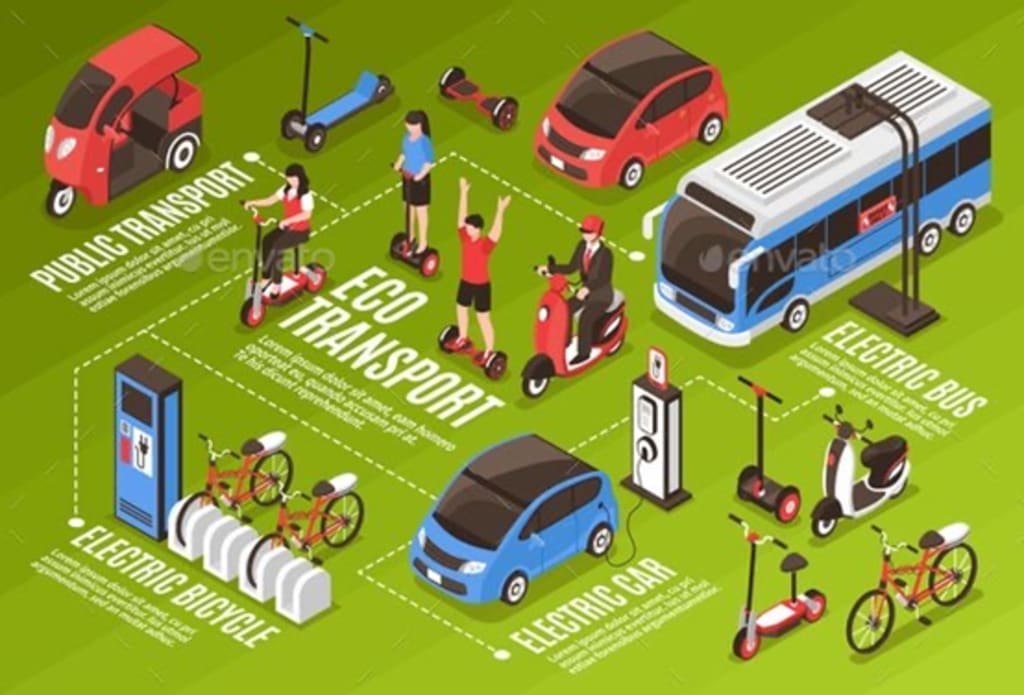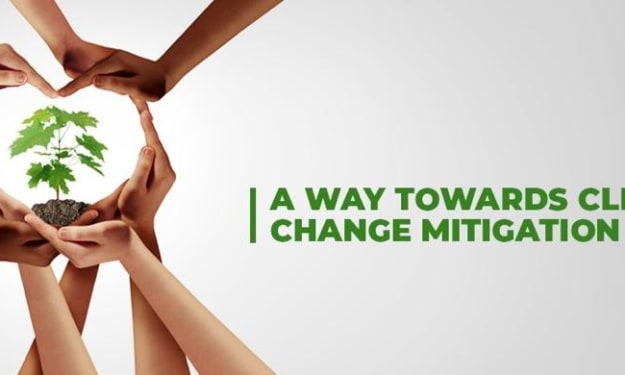How we can all contribute to, the fight against climate change from our immediate environment....Article 3
Combating Climate Change with Sustainable Transportation: A Pathway to Greener Mobility

Introduction
Climate change poses one of the most significant challenges of our time, and addressing it requires a collective effort across various sectors. One crucial aspect of this effort is the transformation of transportation systems, which are major contributors to greenhouse gas emissions. Sustainable transportation offers a viable solution to mitigate the environmental impact of commuting while promoting greener alternatives. This article explores key strategies to combat climate change through sustainable transportation, focusing on the development and improvement of public transportation, cycling lanes, and pedestrian pathways, as well as the promotion of electric vehicles and carpooling.
Enhancing Public Transportation Systems
A cornerstone of sustainable transportation is the development and improvement of public transportation systems. Robust public transit networks can significantly reduce the number of private vehicles on the road, thereby curbing emissions. To achieve this, cities and governments must invest in expanding and upgrading public transportation infrastructure.
Investment in high-capacity, energy-efficient modes of public transportation, such as buses and trains, can lead to a substantial reduction in carbon emissions. Modernizing fleets to include electric or hybrid vehicles is a crucial step in this process. Additionally, implementing intelligent transportation systems that optimize routes and schedules can enhance efficiency, further reducing energy consumption.
Promoting the use of public transportation requires making it accessible, affordable, and convenient for all citizens. Subsidies, fare reductions, and integrated ticketing systems can incentivize people to choose public transit over private vehicles. Moreover, increasing the frequency and reliability of services ensures that public transportation remains a viable and attractive option for commuters.
Building Cycling Lanes and Pedestrian Pathways:
In addition to bolstering public transportation, creating safe and accessible cycling lanes and pedestrian pathways is essential for encouraging eco-friendly modes of transport. Active transportation options not only reduce emissions but also promote healthier lifestyles and contribute to vibrant, walkable communities.
Cities around the world are increasingly recognizing the importance of investing in cycling infrastructure. Dedicated cycling lanes separated from vehicular traffic not only enhance safety for cyclists but also encourage more people to choose bikes as a mode of transport. Implementing bike-sharing programs and creating secure bike storage facilities further support the adoption of cycling as a sustainable alternative.
Pedestrian pathways are equally crucial for reducing reliance on motorized transportation. Well-designed walkways not only improve safety but also foster a sense of community and enhance the overall quality of urban life. Integrating green spaces along pedestrian pathways can provide additional environmental benefits, acting as carbon sinks and contributing to biodiversity.
Incentivizing Electric Vehicles (EVs) and Carpooling:
The transition to electric vehicles represents a pivotal step in combating climate change within the realm of personal transportation. Governments and businesses can play a significant role in accelerating this shift by offering incentives for the purchase of electric vehicles and investing in charging infrastructure.
Financial incentives, such as tax credits, rebates, and subsidies for electric vehicle buyers, can make these eco-friendly options more accessible to a broader segment of the population. Furthermore, developing an extensive network of charging stations is crucial for alleviating range anxiety and promoting the widespread adoption of electric vehicles.
Carpooling presents another effective strategy for reducing the environmental impact of personal transportation. By sharing rides, commuters can decrease the overall number of vehicles on the road, leading to lower emissions per passenger. Governments can encourage carpooling through the implementation of dedicated carpool lanes, tax incentives for carpool participants, and user-friendly ride-sharing platforms.
Integrated Urban Planning:
Sustainable transportation is closely tied to urban planning. Designing cities and communities with an emphasis on mixed-use developments, compact neighborhoods, and efficient public transportation networks can significantly reduce the need for individual car travel. Implementing smart city technologies and prioritizing sustainable urban design principles contribute to the creation of environmentally conscious and livable urban spaces.
Economic and Social Benefits:
Beyond the environmental advantages, the adoption of sustainable transportation practices brings about significant economic and social benefits. The renewable energy sector, including the production and distribution of electric vehicles, creates jobs and stimulates economic growth. Moreover, improved public transportation systems contribute to social equity by providing affordable and accessible mobility options for all members of society.
Overcoming Challenges and Barriers:
While the benefits of sustainable transportation are evident, there are challenges and barriers that must be addressed to ensure successful implementation. One significant obstacle is resistance to change, as people often resist adopting new modes of transportation due to habit or convenience. Public awareness campaigns highlighting the environmental and personal benefits of sustainable transportation can help overcome this resistance.
Infrastructure development is another critical aspect that requires substantial investment. Governments and municipalities must prioritize funding for the creation and maintenance of cycling lanes, pedestrian pathways, and public transportation systems. Collaboration between the public and private sectors is essential to secure the necessary resources and expertise for these projects.
Additionally, addressing the economic concerns of individuals and businesses is crucial. Governments can play a role in incentivizing sustainable practices by offering financial benefits and creating a regulatory environment that supports environmentally friendly transportation initiatives.
Global Collaboration and Policy Initiatives:
Addressing climate change through sustainable transportation requires international collaboration and supportive policy frameworks. Governments worldwide must incentivize the adoption of electric vehicles, invest in sustainable infrastructure, and implement regulations that encourage the reduction of emissions from the transportation sector. Global initiatives, such as the Paris Agreement, underscore the importance of collective efforts in combating climate change through sustainable practices.
Conclusion:
Combating climate change requires a multifaceted approach, and sustainable transportation plays a pivotal role in this endeavor. By developing and improving public transportation systems, cycling lanes, and pedestrian pathways, as well as promoting electric vehicles and carpooling, societies can significantly reduce their carbon footprint. Governments, businesses, and individuals must work together to overcome challenges and embrace sustainable transportation solutions for a greener, more sustainable future. As we navigate the path toward a low-carbon transportation system, the benefits extend beyond environmental conservation to include improved public health, enhanced urban livability, and a more resilient and sustainable society.





Comments
There are no comments for this story
Be the first to respond and start the conversation.